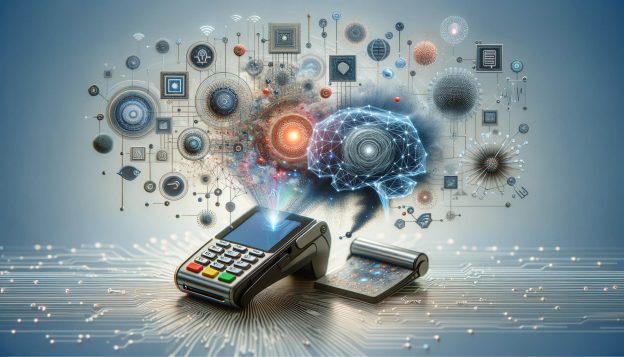In today’s fast-paced and technology-driven world, businesses are constantly seeking ways to improve their operations and enhance customer experiences. One area that has seen significant advancements is the point of sale (POS) system. Traditionally, POS systems were used solely for processing transactions, but with the advent of artificial intelligence (AI) and machine learning, these systems have undergone a transformation.
AI and machine learning have revolutionized the way businesses operate, enabling them to streamline operations, personalize marketing efforts, and ensure data security. In this article, we will explore how AI and machine learning are transforming POS systems and the various benefits they bring to businesses.
Understanding AI and Machine Learning in the Context of POS Systems
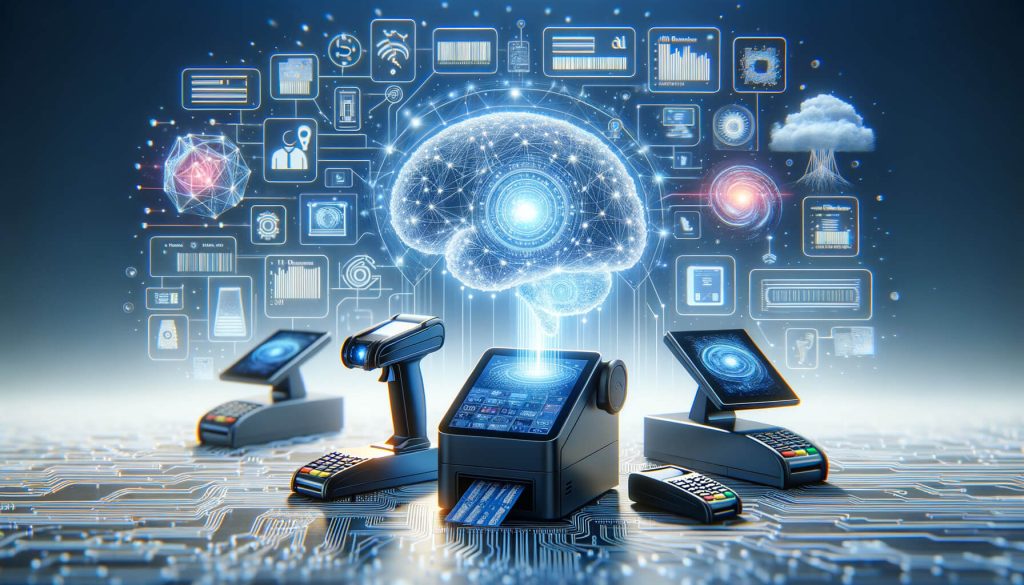
Before delving into the impact of AI and machine learning on POS systems, it is essential to understand what these terms mean in this context. AI refers to the ability of a computer system to perform tasks that typically require human intelligence, such as speech recognition, decision-making, and problem-solving.
On the other hand, machine learning is a subset of AI that focuses on enabling computers to learn and improve from experience without being explicitly programmed. In the context of POS systems, AI and machine learning technologies are used to analyze vast amounts of data, identify patterns, and make predictions or recommendations.
Enhancing Customer Experience with AI-powered POS Systems
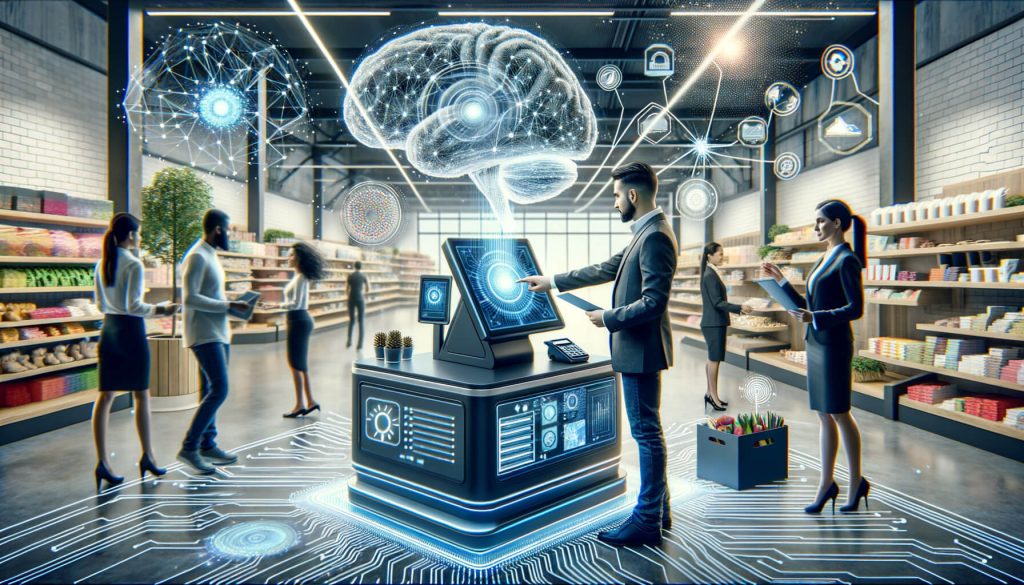
One of the significant benefits of AI and machine learning in POS systems is their ability to enhance the customer experience. By analyzing customer data, these systems can provide personalized recommendations, promotions, and offers based on individual preferences and purchase history. For example, a clothing retailer can use AI-powered POS systems to suggest complementary items to customers based on their previous purchases. This not only improves customer satisfaction but also increases sales and customer loyalty.
Furthermore, AI-powered POS systems can also improve the checkout process, reducing waiting times and enhancing overall efficiency. For instance, self-checkout systems equipped with AI technology can automatically detect and weigh items, eliminating the need for manual input and reducing errors. This not only speeds up the checkout process but also improves accuracy, resulting in a seamless and hassle-free experience for customers.
Streamlining Operations and Inventory Management through Machine Learning
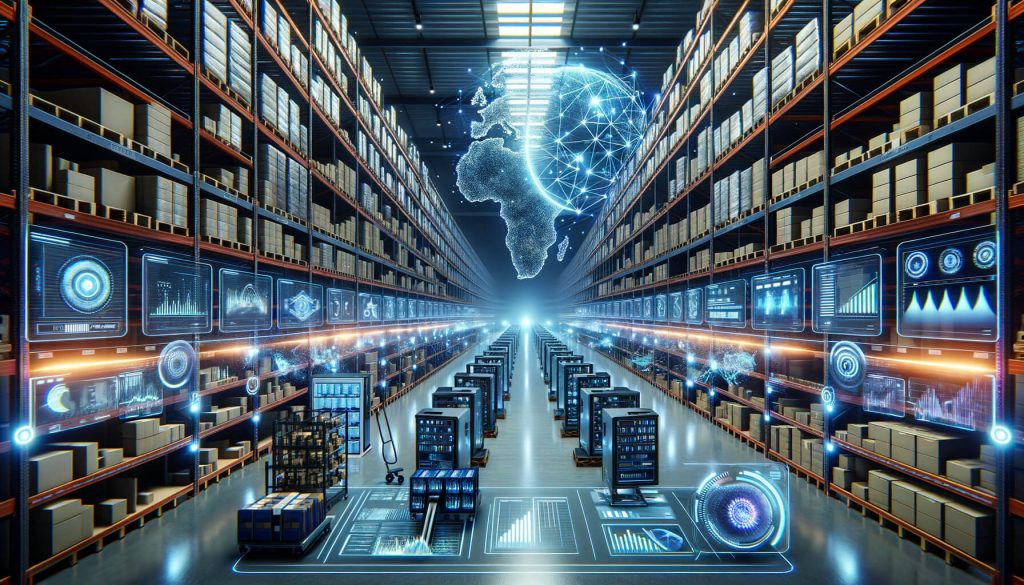
Another significant impact of AI and machine learning on POS systems is their ability to streamline operations and inventory management. By analyzing sales data, these systems can predict demand patterns, optimize inventory levels, and automate reordering processes. This ensures that businesses always have the right products in stock, reducing the risk of stockouts and overstocking. Additionally, machine learning algorithms can analyze historical sales data to identify trends and seasonality, enabling businesses to make informed decisions regarding pricing, promotions, and product assortment.
Moreover, AI-powered POS systems can also automate various operational tasks, such as employee scheduling and performance tracking. By analyzing historical sales data, foot traffic patterns, and employee performance metrics, these systems can generate optimized schedules that ensure adequate staffing levels during peak hours. This not only improves operational efficiency but also enhances employee satisfaction by ensuring fair and balanced workloads.
Leveraging AI for Personalized Marketing and Customer Insights
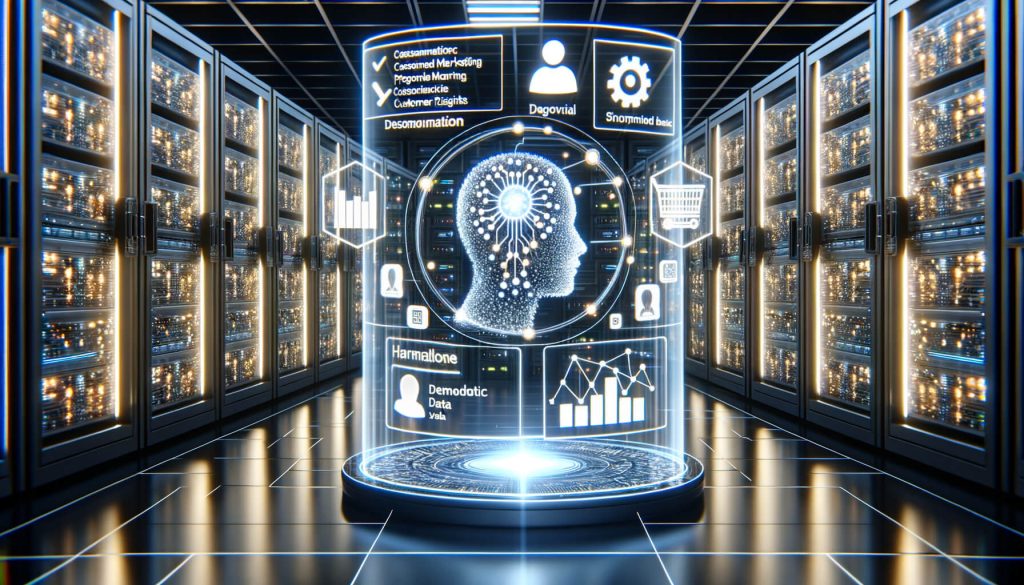
AI and machine learning have revolutionized the way businesses approach marketing and customer insights. With the help of AI-powered POS systems, businesses can collect and analyze vast amounts of customer data, enabling them to gain valuable insights into customer behavior, preferences, and purchasing patterns. This data can then be used to create personalized marketing campaigns that target specific customer segments with relevant offers and promotions.
For example, a grocery store can use AI-powered POS systems to analyze customer purchase history and identify patterns. Based on this analysis, the store can send personalized offers and discounts to customers for products they frequently purchase. This not only increases the likelihood of repeat purchases but also enhances customer loyalty and satisfaction.
Furthermore, AI-powered POS systems can also analyze customer feedback and sentiment data from various sources, such as social media and online reviews. By analyzing this data, businesses can gain insights into customer satisfaction levels, identify areas for improvement, and make data-driven decisions to enhance the overall customer experience.
Ensuring Data Security and Fraud Detection with AI in POS Systems
Data security and fraud detection are critical concerns for businesses operating POS systems. With the increasing prevalence of cyber threats and data breaches, businesses need robust security measures to protect customer data and prevent fraudulent activities. AI and machine learning technologies can play a crucial role in ensuring data security and fraud detection in POS systems.
AI-powered POS systems can analyze transaction data in real-time, flagging any suspicious activities or anomalies that may indicate fraudulent behavior. For example, if a customer’s purchasing pattern suddenly deviates significantly from their historical behavior, the system can trigger an alert for further investigation. Additionally, AI algorithms can also analyze historical transaction data to identify patterns and trends associated with fraudulent activities, enabling businesses to proactively implement preventive measures.
Integrating AI and Machine Learning into Payment Processing
Payment processing is a fundamental aspect of POS systems, and AI and machine learning have revolutionized this process as well. AI-powered payment processing systems can analyze transaction data to identify potential risks and prevent fraudulent activities.
For example, these systems can analyze various factors, such as transaction amount, location, and customer behavior, to determine the likelihood of a transaction being fraudulent. If a transaction is flagged as potentially fraudulent, the system can prompt additional verification steps, such as requesting a PIN or sending a verification code to the customer’s mobile device.
Furthermore, AI-powered payment processing systems can also enable businesses to offer alternative payment methods, such as mobile wallets and contactless payments. These systems can analyze customer preferences and behavior to determine the most suitable payment options for individual customers, enhancing convenience and improving the overall customer experience.
Overcoming Challenges and Limitations of AI in POS Systems
While AI and machine learning offer numerous benefits to POS systems, there are also challenges and limitations that need to be addressed. One of the significant challenges is the need for high-quality and accurate data. AI algorithms rely on large amounts of data to make accurate predictions and recommendations. Therefore, businesses need to ensure that their POS systems are collecting and storing data accurately and securely. Additionally, businesses need to invest in data cleaning and preprocessing techniques to eliminate any noise or inconsistencies in the data.
Another challenge is the need for skilled personnel to develop and maintain AI-powered POS systems. AI and machine learning technologies require expertise in data science, programming, and algorithm development. Therefore, businesses need to invest in training their employees or hiring skilled professionals to ensure the successful implementation and maintenance of AI-powered POS systems.
Furthermore, ethical considerations also need to be taken into account when implementing AI in POS systems. For example, businesses need to ensure that customer data is collected and used in a transparent and ethical manner. Additionally, businesses need to address concerns regarding privacy and data security to build trust with their customers.
Frequently Asked Questions (FAQs)
Q1: What is the difference between AI and machine learning in the context of POS systems?
AI refers to the ability of a computer system to perform tasks that typically require human intelligence, while machine learning is a subset of AI that focuses on enabling computers to learn and improve from experience without being explicitly programmed.
Q2: How can AI-powered POS systems enhance the customer experience?
AI-powered POS systems can enhance the customer experience by providing personalized recommendations, promotions, and offers based on individual preferences and purchase history. Additionally, these systems can improve the checkout process, reducing waiting times and enhancing overall efficiency.
Q3: How can machine learning streamline operations and inventory management in POS systems?
Machine learning can streamline operations and inventory management in POS systems by analyzing sales data, predicting demand patterns, optimizing inventory levels, and automating reordering processes. Additionally, machine learning algorithms can analyze historical sales data to identify trends and seasonality, enabling businesses to make informed decisions regarding pricing, promotions, and product assortment.
Q4: How can AI be leveraged for personalized marketing and customer insights in POS systems?
AI-powered POS systems can collect and analyze vast amounts of customer data, enabling businesses to gain valuable insights into customer behavior, preferences, and purchasing patterns. This data can then be used to create personalized marketing campaigns that target specific customer segments with relevant offers and promotions.
Q5: How can AI ensure data security and fraud detection in POS systems?
AI-powered POS systems can analyze transaction data in real-time, flagging any suspicious activities or anomalies that may indicate fraudulent behavior. Additionally, AI algorithms can also analyze historical transaction data to identify patterns and trends associated with fraudulent activities, enabling businesses to proactively implement preventive measures.
Conclusion
AI and machine learning have transformed POS systems, enabling businesses to enhance customer experiences, streamline operations, personalize marketing efforts, ensure data security, and improve payment processing. By leveraging AI and machine learning technologies, businesses can gain valuable insights into customer behavior, optimize inventory management, and prevent fraudulent activities.
However, implementing AI in POS systems also comes with challenges and limitations, such as the need for high-quality data, skilled personnel, and ethical considerations. Despite these challenges, the benefits of AI and machine learning in POS systems far outweigh the drawbacks, making them an essential tool for businesses in today’s digital age.

